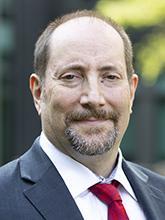Screening for the Prevention of Cervical Cancer: The Good, the Bad, and the Ugly

Dr. Philip Castle is a Professor in the Department of Epidemiology and Population Health at Albert Einstein College of Medicine, Bronx, N.Y., USA and the CEO and Co-Founder of the Global Coalition Against Cervical Cancer (Arlington, VA, USA). He is also a Visiting Professor at the Cancer Institute/Hospital, Chinese Academy of Medical Sciences and Peking Union Medical College in Beijing, P.R. China and was Honorary Professor at the University of New South Wales, Sydney, Australia. Previously, Dr. Castle was the Chief Scientific Officer of the American Society for Clinical Pathology (ASCP) (2011-2). He was a Senior, Tenured Investigator (2010-11) and Tenure-Track Investigator (2003-10) in the Division of Cancer Epidemiology and Genetics (DCEG) at the U.S. National Cancer Institute (NCI). He received his Ph.D. in Biophysics in 1995 and M.P.H. in Epidemiology in 2000 from the Johns Hopkins University.
Dr. Castle regularly participates in the development of national and international guidelines for cervical cancer prevention. Dr. Castle serves as a consultant for several countries, including Nicaragua, Norway, and Australia, on the development of national cervical cancer prevention programs and is participating in/consulting on pilot/demonstration projects in El Salvador and Botswana. He was recently a member of the Centers for Disease Control and Prevention’s (CDC) National Breast and Cervical Cancer Early Detection and Prevention (NBCCEDP) Advisory Committee. Dr. Castle is a member of the Board of Directors of the American Society for Colposcopy and Cervical Pathology (ASCCP). He serves as steering committee member of the American Society for Clinical Oncology’s Cervical Cancer Resource Stratified Secondary Prevention Guideline Panel.
For his work in cervical cancer prevention, Dr. Castle has received (1) An EUROGIN Distinguished Service Award (2006); (2) a NIH Merit Award for introduction of HPV testing into low-resource settings in the U.S. (2007); (3) a Distinguished Scientific Achievement Award from the ASCCP (2010), its highest honor; (4) The Arthur S. Flemming Award for Exceptional Achievement in Federal Government Service for Applied Science, Engineering and Mathematics (2010); and (5) NCI Cancer Prevention Fellowship Program Distinguished Alumni (2017-8).